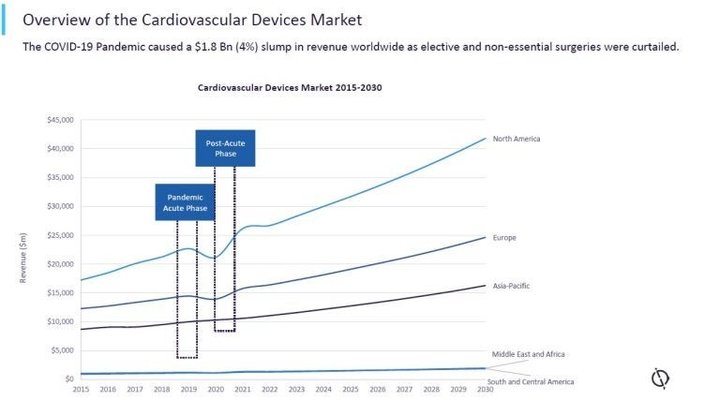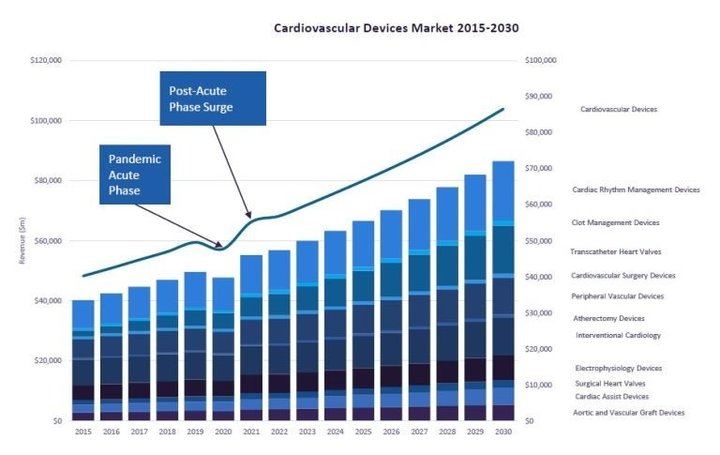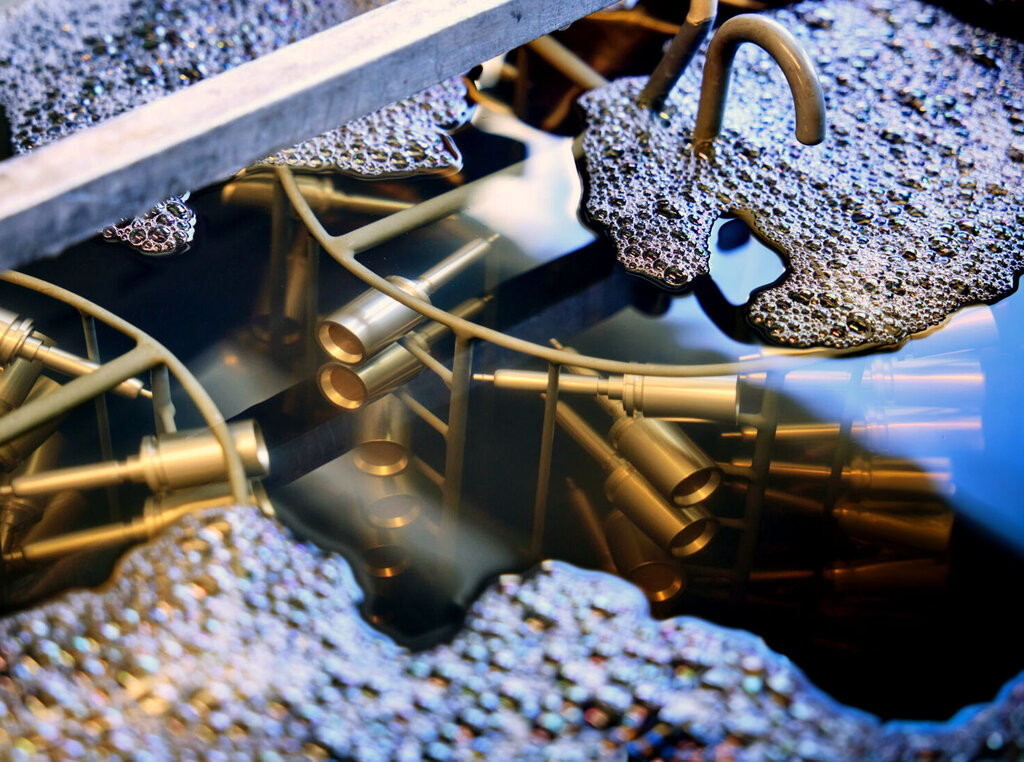Company Insight
Sponsored by Alleima
The benefits of braided medical wire for medical devices
Braided medical wire is chosen for applications from catheters to neurostimulation devices, offering superior strength, flexibility, and fatigue resistance.
Nitinol braided wire. Image credit: Alleima.
The components used in the construction of medical devices play a crucial role in their effectiveness and in determining the suitability for their applications.
For medical device manufacturers, choosing medical wire components can be a challenge given the wide range of materials, coatings, and compositions. Braided medical wires are used across a diverse range of medical fields due to their strength, flexibility, and durability.
The benefits of braided wire: flexibility and strength

The Covid-19 pandemic caused a global shock to the medical services market. In some areas, this entailed a sharp surge in demand, leading to lowered inventories and a scramble to fulfil orders. In many areas, disruption was in the form of a sudden drop in demand, with elective and non-essential surgeries curtailed. According to GlobalData analysis, some of the market segments that saw the biggest fall were interventional cardiology, cardiac rhythm management, surgical heart valves, clot management devices, and atherectomy devices. As the pandemic progressed, some restrictions were relaxed to enable hospital procedures to resume.

One of the primary benefits of braided medical wire is its exceptional flexibility and strength. This combination is crucial for medical devices that must navigate the complex and often delicate structures within the human body. Braided wire can bend and twist without compromising its structural integrity, making it ideal for applications such as catheters, guidewires, and stents.
The braiding process involves weaving multiple strands of wire together, which distributes stress more evenly across the material. This results in a wire that can withstand higher levels of stress and strain compared to non-braided alternatives. For example, in catheter applications, braided wire enhances manoeuvrability and control, enabling physicians to perform procedures with greater precision and less risk of damaging surrounding tissues.

One of the main reasons why electroplating has become an essential part of medical device manufacturing is to improve patient safety by allowing the more durable materials used in implants to be rendered biocompatible.
Enhanced fatigue resistance for medical wire
Medical devices are often subjected to repetitive motions and cycles of loading and unloading, which can lead to material fatigue and eventual failure. Braided medical wire offers superior fatigue resistance, ensuring that devices remain reliable and functional over extended periods of use. This is particularly important in long-term implants such as pacemaker leads and neurostimulation devices, where device failure could have serious consequences.
The multi-strand construction of braided wire allows for better distribution of mechanical stress, reducing the likelihood of cracks and breaks that can occur in single-strand wires. This durability translates to longer-lasting medical devices, ultimately improving patient outcomes and reducing the need for frequent replacements or interventions.
Improved biocompatibility in medical devices
Biocompatibility is a critical consideration in the design of medical devices that come into contact with bodily tissues and fluids. Braided medical wire can be manufactured from a variety of biocompatible materials, such as stainless steel, nitinol, and cobalt-chromium alloys. These materials are well-tolerated by the body, minimising the risk of adverse reactions and ensuring patient safety.
Nitinol, in particular, is a popular choice for braided medical wire due to its unique shape memory and super-elastic properties. These characteristics allow devices to conform to the body’s natural movements and return to their original shape after deformation, providing comfort and reliability.
Advances in manufacturing medical wire
Innovations in material science have led to the development of new alloys and coatings that enhance the properties of braided wire. For example, coatings that reduce friction and improve lubricity can enhance the performance of guidewires and catheters, making them easier to manoeuvre through the body’s intricate pathways.
Alleima is known for its expertise in producing high-quality medical wire. With a focus on innovation, precision, and reliability, Alleima has worked with leading medical device manufacturers to design and develop braided nitinol wire for a range of medical applications.
Alleima specialises in a wide range of materials, including stainless steel, nitinol, and cobalt-chromium alloys, all known for their high quality, strength, and durability. State-of-the-art equipment and techniques enable medical wire to be produced according to exact specifications. This precision is vital for wire-based applications where the body’s complex and delicate structures must be navigated, for instance with uses that include catheters, guidewires, as well as ultra-fine wire for deep brain stimulation or remote patient monitoring.
Braided nitinol medical wire from Alleima is designed to offer superior mechanical properties, including high flexibility and strength. These attributes are essential for medical devices that must withstand repetitive motions and high stress without compromising their structural integrity. The multi-strand construction of their braided wire distributes stress more evenly, enhancing durability and fatigue resistance. Alleima also applies coatings and surface treatments to their braided nitinol medical wire to enhance its performance, improve lubricity, reduce friction, and increase corrosion resistance.
Alleima’s capabilities in braided nitinol medical wire are characterised by their advanced material expertise, precision manufacturing, and commitment to quality. The company’s ability to customise products, coupled with innovative coatings and surface treatments ensures that diverse needs of the medical device industry are met. Through continuous research and development, Alleima remains at the cutting edge of medical wire technology, providing reliable and high-performance solutions that enhance patient care and medical device functionality.
To find out more about Alleima’s engineering solutions and nitinol processing capabilities visit their website.
Contact information
Alleima Advance Materials
1 Commerce Blvd.,
Palm Coast, FL, 32164,
United States
Tel: +1 386 445-2000
Fax: +1 386 447-5113
Email: sales.pc@alleima.com
Alleima Tucson
2424 East Aragon Rd
Tucson, AZ 85756
United States
Tel: +1 520 495 5927
Alleima Zug
Oberallmendstrasse 20a
CH-6300 Zug
Switzerland
Tel: +41 41 761 63 55
Email:sales.sb@alleima.com
Alleima St Imier
Rue de Beau Site 8
CH-2610 Saint-Imier
Switzerland
Tel: +41 32 942 39 20
Email: sales.sb@alleima.com
Alleima Karlsruhe GmbH
Wilhelm-Schickard-Str. 9c,
76131 Karlsruhe
Germany
Tel: +49 |0| 721 957 967 000
Email: sales.ka@alleima.com